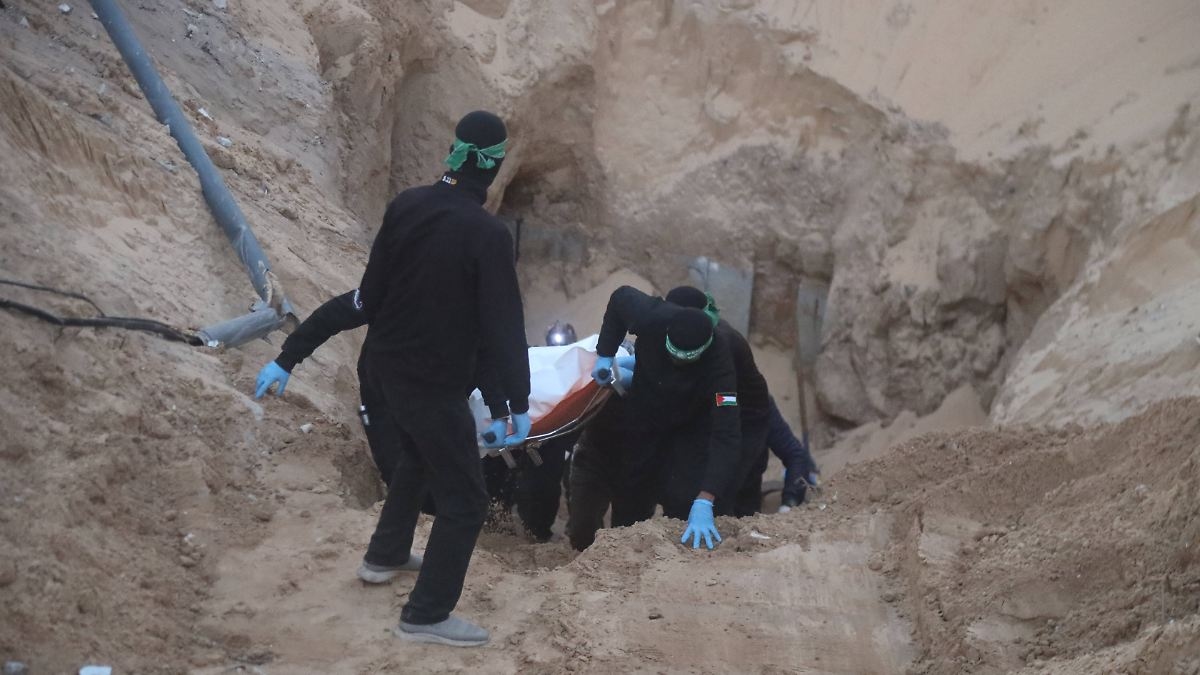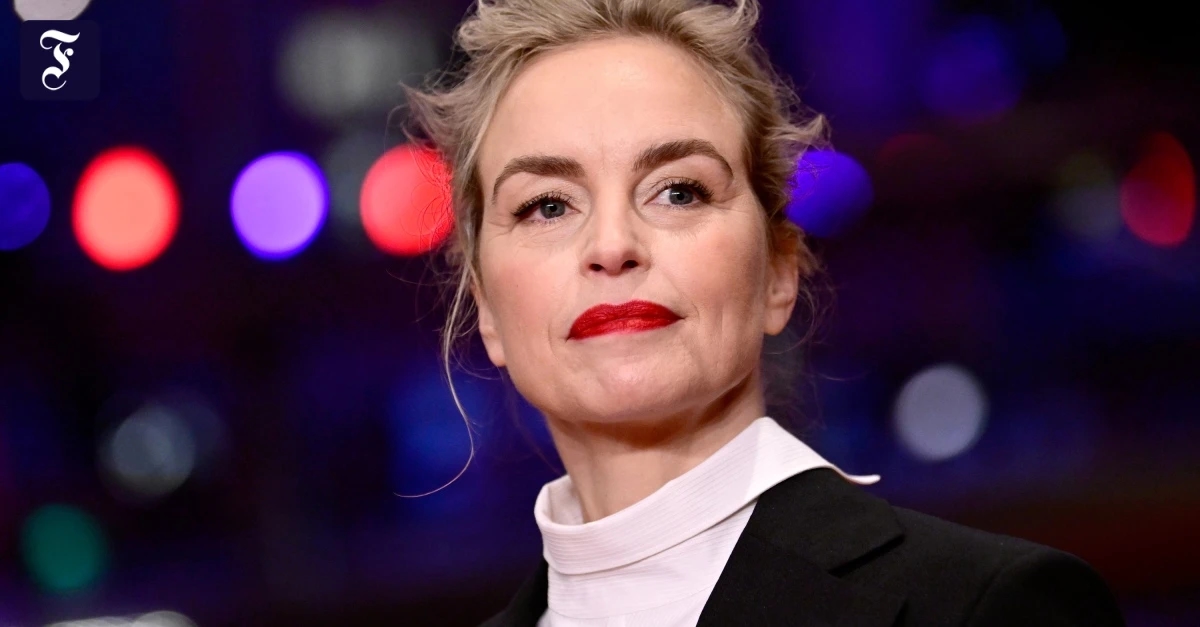Election in Côte d'Ivoire: The world's cocoa center decides on its future
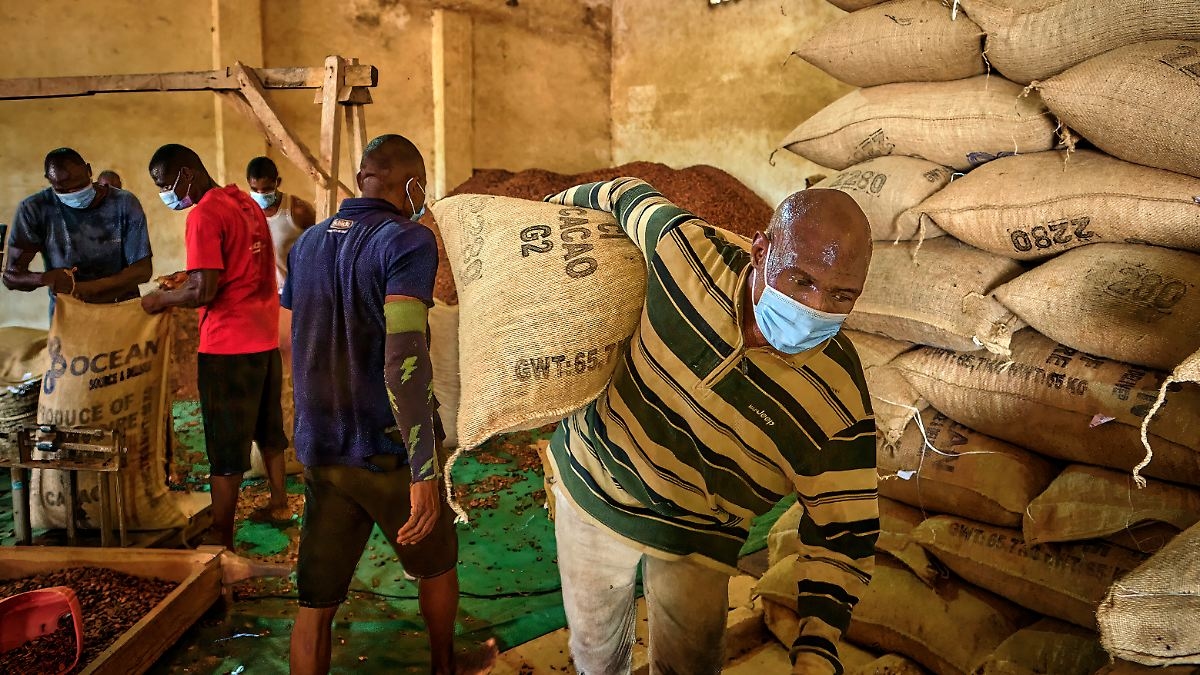
Germany imports cocoa worth several hundred million euros from Côte d'Ivoire every year.
(Photo: picture alliance / abaca)
For over a decade, President Ouattara's government in Côte d'Ivoire has delivered some of Africa's highest growth rates. Infrastructure is being expanded, and lenders are praising the country. Behind the impressive statistics lie inequalities.
Côte d'Ivoire, the world's leading cocoa producer and one of West Africa's most dynamic economies, is facing a pivotal election. This Saturday, Ivorians are called to cast their votes in a presidential election overshadowed by controversy and growing mistrust. Beneath the surface of economic success, reflected primarily in the metropolis of Abidjan, the country's political foundations are once again faltering.
Côte d'Ivoire, formerly known as Ivory Coast, has experienced turbulent political development, oscillating between democratic progress and authoritarian relapses. Following the 1999 military coup, successive crises—including the civil war between 2002 and 2007 and the 2010 presidential election—deepened national and identity-based divisions. Under President Alassane Ouattara, a period of relative stability and sustained economic growth began, but structural inequalities and fragile national cohesion persist. Despite significant infrastructure developments, social disparities remain acute. Ouattara's third term, which began in 2020 and was controversial due to constitutional constraints, and the perception of ethnic favoritism further underscore persistent weaknesses in the political system: personal rule, politicized institutions, and the instrumentalization of identity.
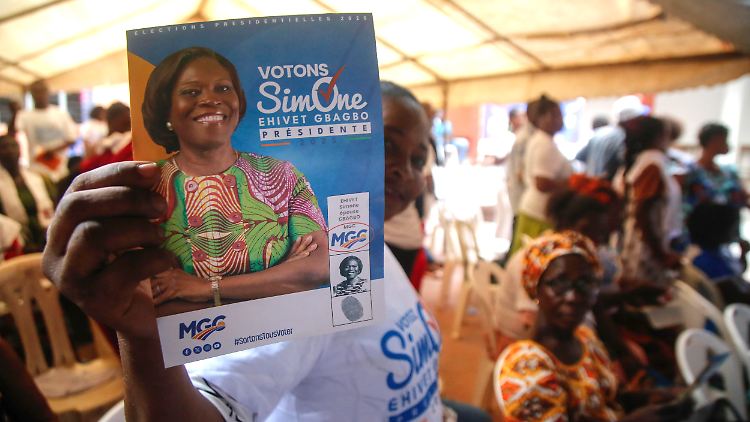
One candidate in the presidential election is Simone Ehivet Gbagbo, wife of the former president and current parliamentary group leader of the Ivorian Popular Front, or FPI for short.
(Photo: picture alliance / Matrix Images)
The upcoming election is reviving old ghosts. Despite a constitutional limit of two terms, the president, in office since 2011, is seeking a fourth term. The 83-year-old argues that the 2016 constitutional reform reset the count of his terms. The Constitutional Council approved his candidacy while excluding key challengers, including former President Laurent Gbagbo and former Credit Suisse CEO Tidjane Thiam. Criminal convictions and citizenship disputes, respectively, were cited as reasons. For many Ivorians, this looks less like legality than choreography.
Repression on the streetsIn recent months, the government's intolerance of dissent has become increasingly evident. Opposition rallies are banned, while pro-government demonstrations take place under police protection. Dozens of activists have been arrested, and mysterious disappearances remain unexplained. When citizens protest, they risk tear gas or worse. Civil society groups describe a climate of fear reminiscent of the unrest of 2010 and 2011, when the disputed presidential election claimed the lives of more than 3,000 people.
The ruling party sees these measures as justified to maintain public order. In reality, however, civic space is shrinking, leaving the opposition with little room to maneuver. The new coalition of opposition forces, the "Commun Front," which brings together the three parties PDCI-RDA, PPA-CI, and FPI, criticizes a potential fourth term for the incumbent president and demands, among other things, electoral reform and the reinstatement of disqualified candidates.
The cocoa connectionBeyond politics, what's happening in Côte d'Ivoire is of importance to chocolate lovers around the world. The country supplies about 40 percent of the world's cocoa and thus generates a significant portion of its GDP. Political instability can quickly impact global commodity markets. If violence erupts in cocoa-growing regions like Bas-Sassandra or Nawa, or if the ports in Abidjan or San Pedro are closed, prices on international exchanges could skyrocket. Smallholder farmers would bear the immediate costs, but consumers in Europe would also feel the impact.
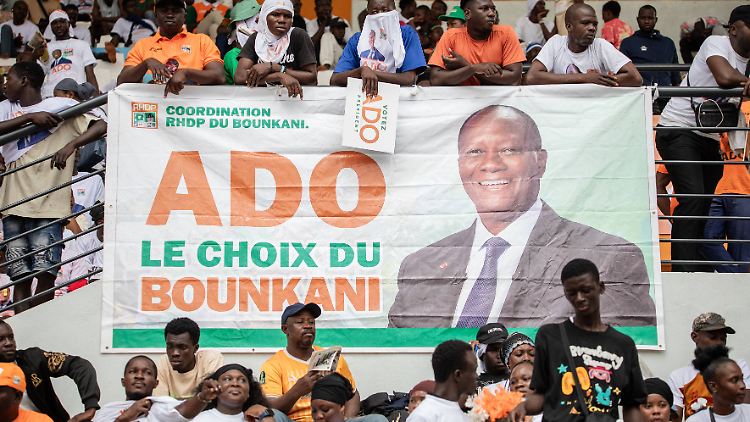
Bounkani is one of 31 regions in Côte d'Ivoire. According to the poster, "Ado," as Alassane Dramane Ouattara is known, is popular there.
(Photo: picture alliance / SIPA)
For Germany, which imports hundreds of millions of euros worth of cocoa from Côte d'Ivoire annually, the stakes are high. The German chocolate industry, one of the largest in Europe, relies on reliable supplies from Côte d'Ivoire. Any disruption—from strikes to violence—could jeopardize supply chains, drive up prices, and delay the EU's own sustainability initiatives in cocoa production.
Economic growth meets political riskIn a country where prosperity depends on stability, any hint of political unrest has economic consequences. A contested election could undo years of progress, fuel capital flight, and deepen social disparities between booming urban centers and marginalized rural areas.
To "guarantee" peace during the election, the government launched Operation Espérance and stationed 44,000 soldiers and police officers throughout the country. Officially, the mission aims to prevent unrest, but critics see it as intimidation in uniform.
The militarization of politics is nothing new in Côte d'Ivoire, but it is particularly alarming given the coup governments in the immediate vicinity, in Mali, Burkina Faso, and Niger. If the violence spreads to Abidjan, the fragile balance in the region could be further destabilized. The country, once a symbol of stability, now risks joining the list of West African democracies under pressure.
The view from Berlin and BrusselsEurope is closely monitoring the situation. Côte d'Ivoire is not only an important trading partner, but also a key player in regional migration management, renewable energy, and the EU's Sustainable Cocoa Strategy. Germany has invested heavily in infrastructure, government programs, and sustainable value chains, among other things.
International actors have repeatedly called for free, fair, and inclusive elections and emphasized that political credibility is essential for long-term economic cooperation. Behind the diplomatic language lies a clear message: When democracy erodes, investor confidence also dwindles.
A collapse of order in Côte d'Ivoire would also put a strain on Europe's supply of cocoa and other raw materials, at a time when trade diversification is already under pressure due to geopolitical tensions. For Germany, stability in Abidjan is not only a moral but also an economic issue.
The history of Côte d'Ivoire is complex. The country has rebuilt itself faster than almost any other post-conflict country in Africa, but it still struggles with the same ghosts that once tore it apart. Currently, the world's cocoa center finds itself in a difficult situation. The flavor of Côte d'Ivoire's future—and perhaps of chocolate worldwide—will be decided soon.
The author: Dr. Stefanie Brinkel heads the Regional Programme Political Dialogue West Africa (PDWA) of the Konrad Adenauer Foundation, based in Abidjan.
Source: ntv.de
n-tv.de


